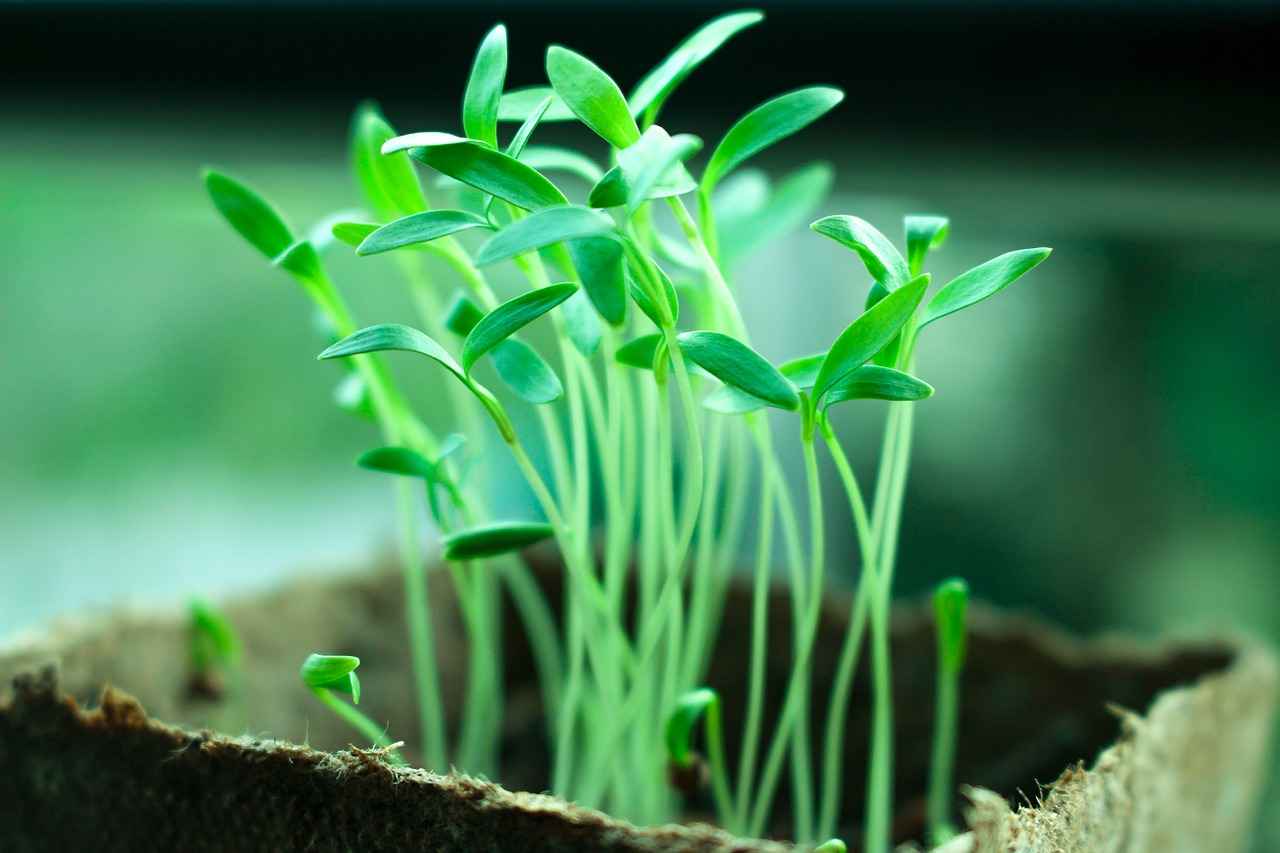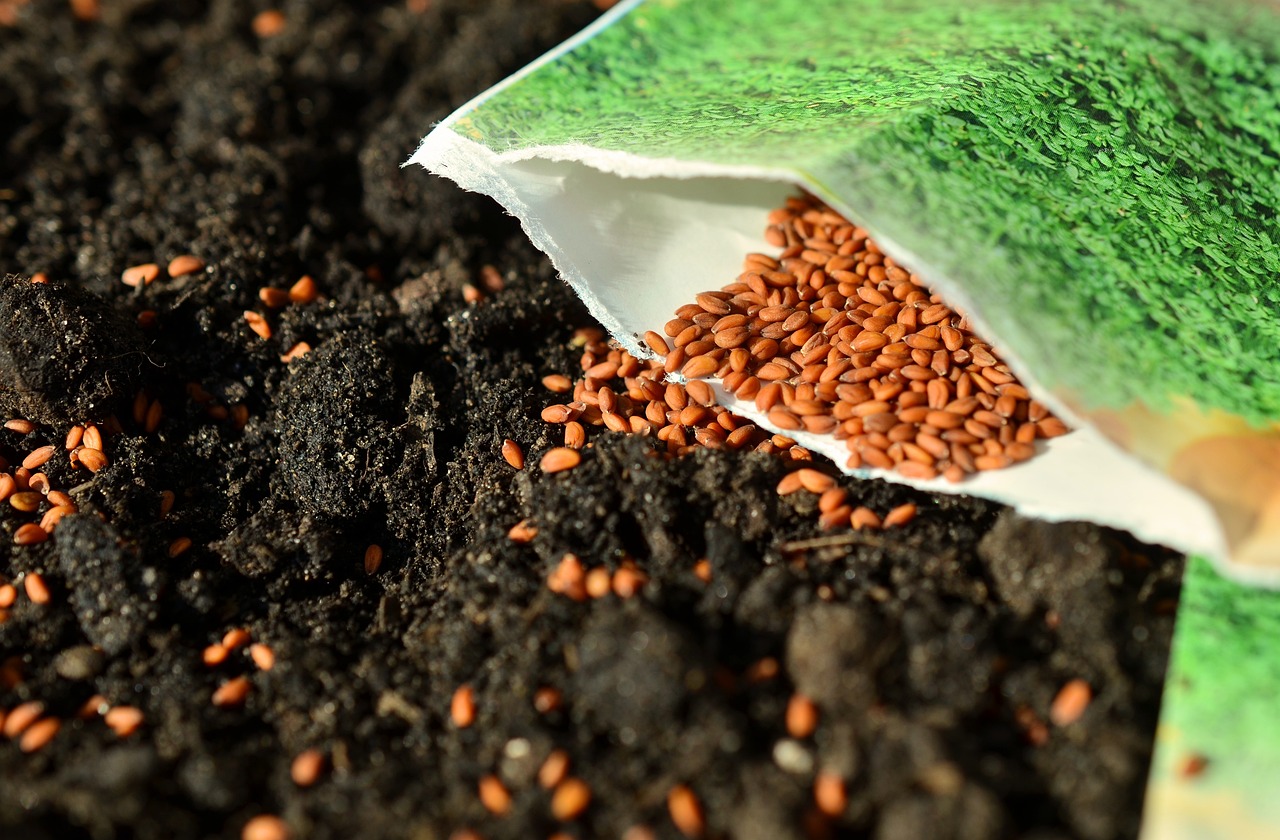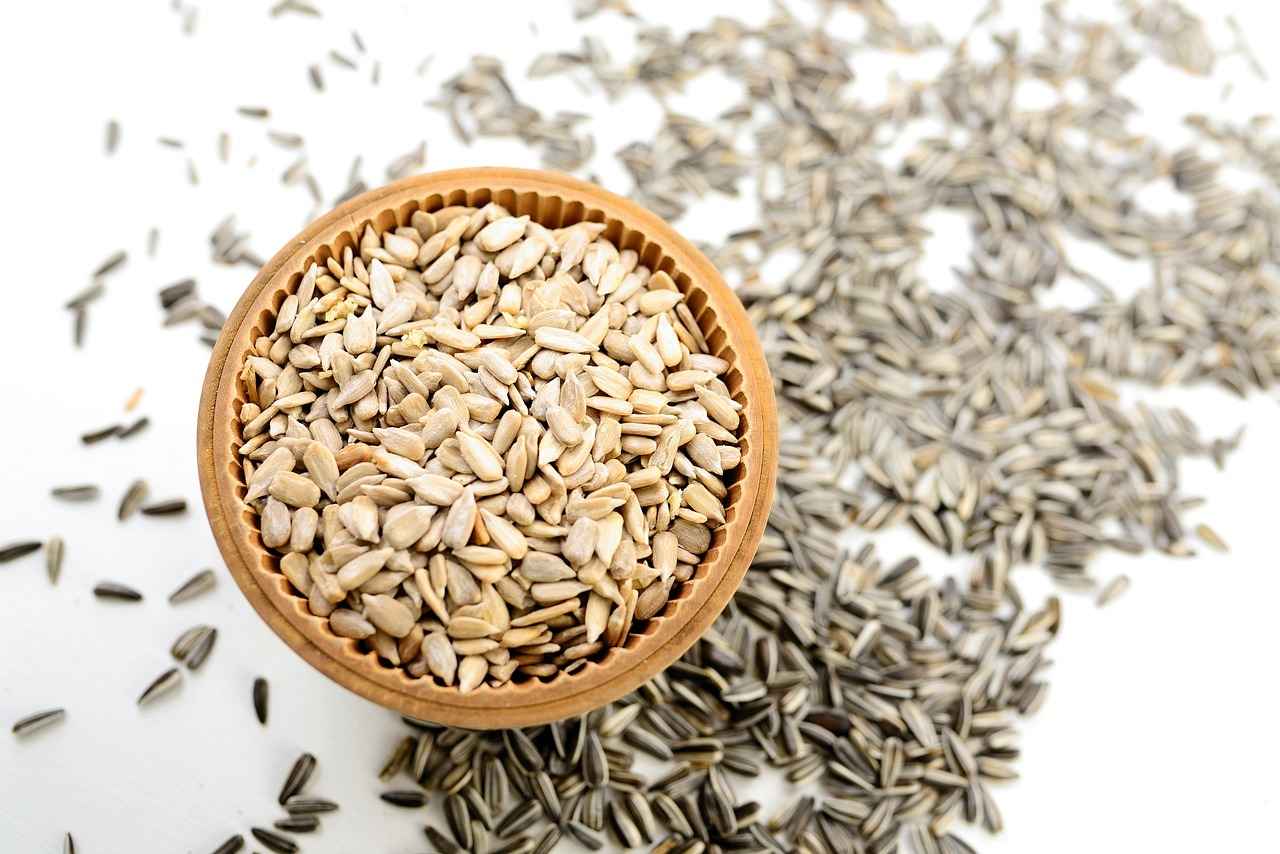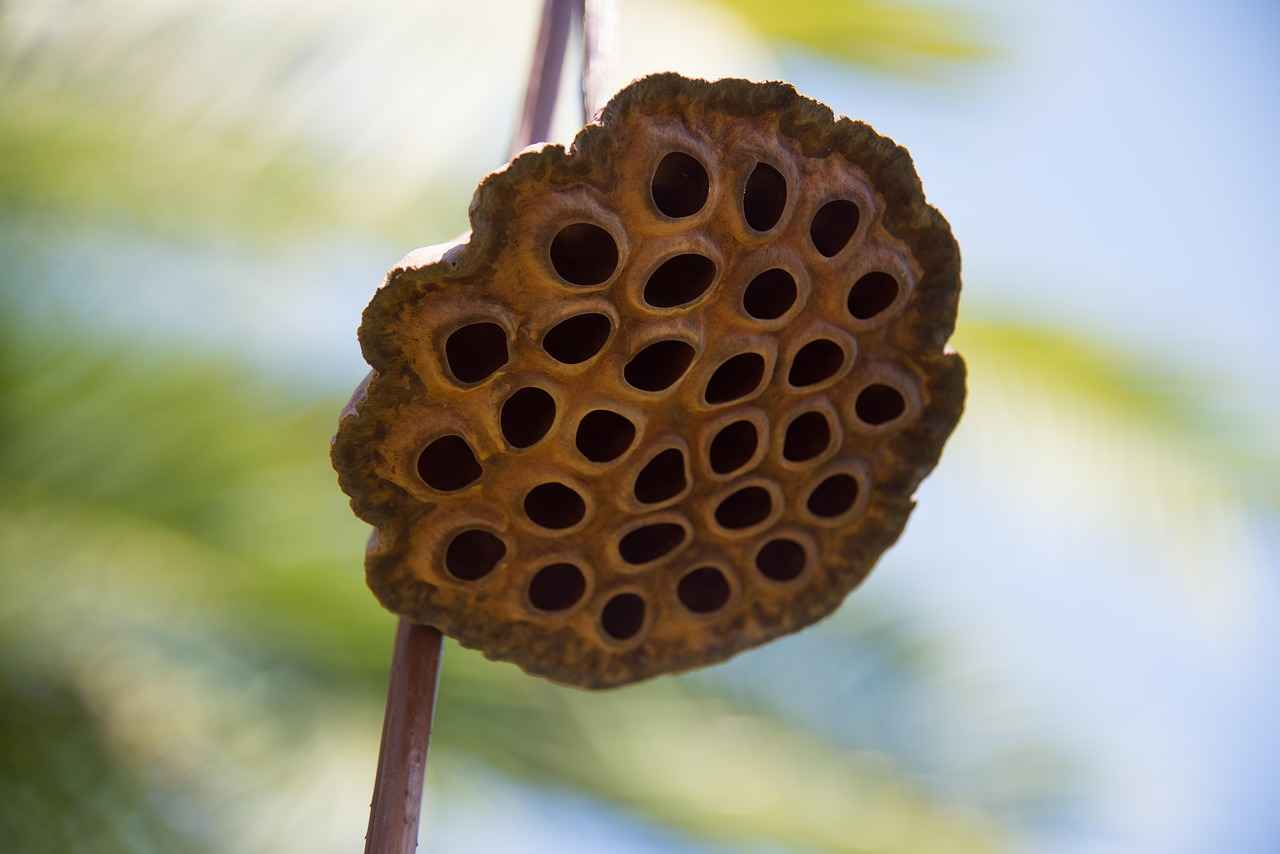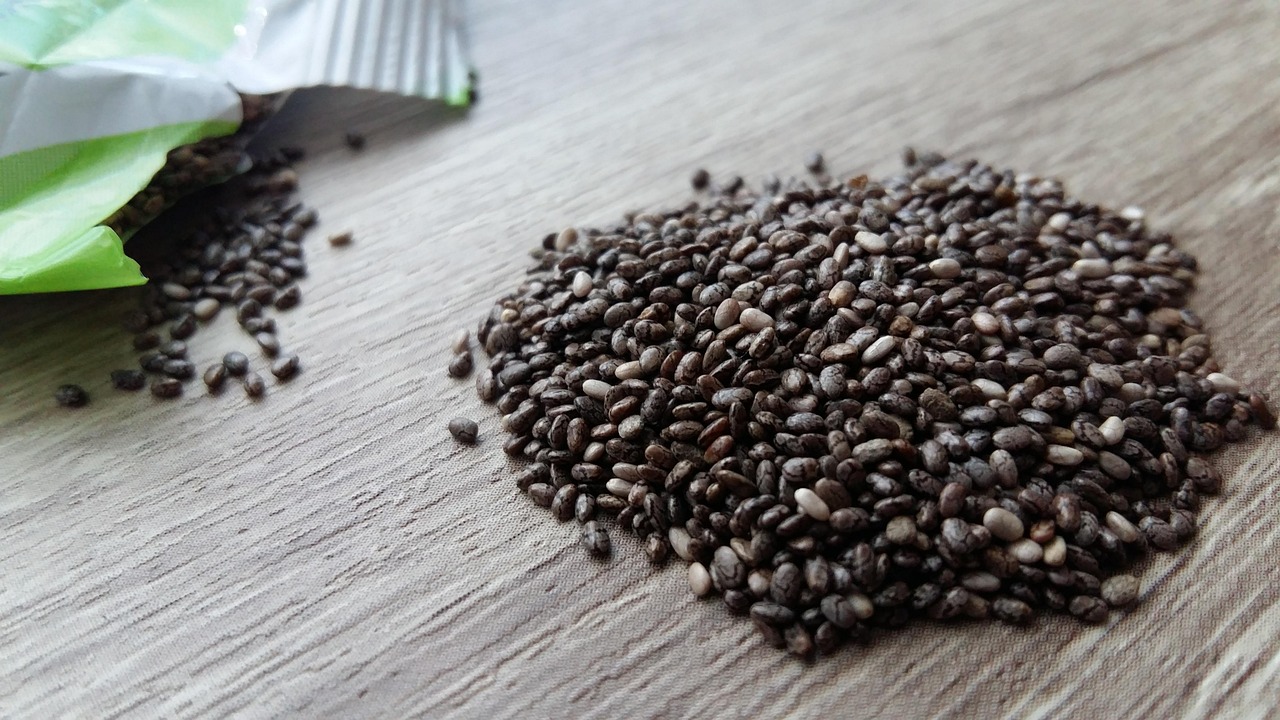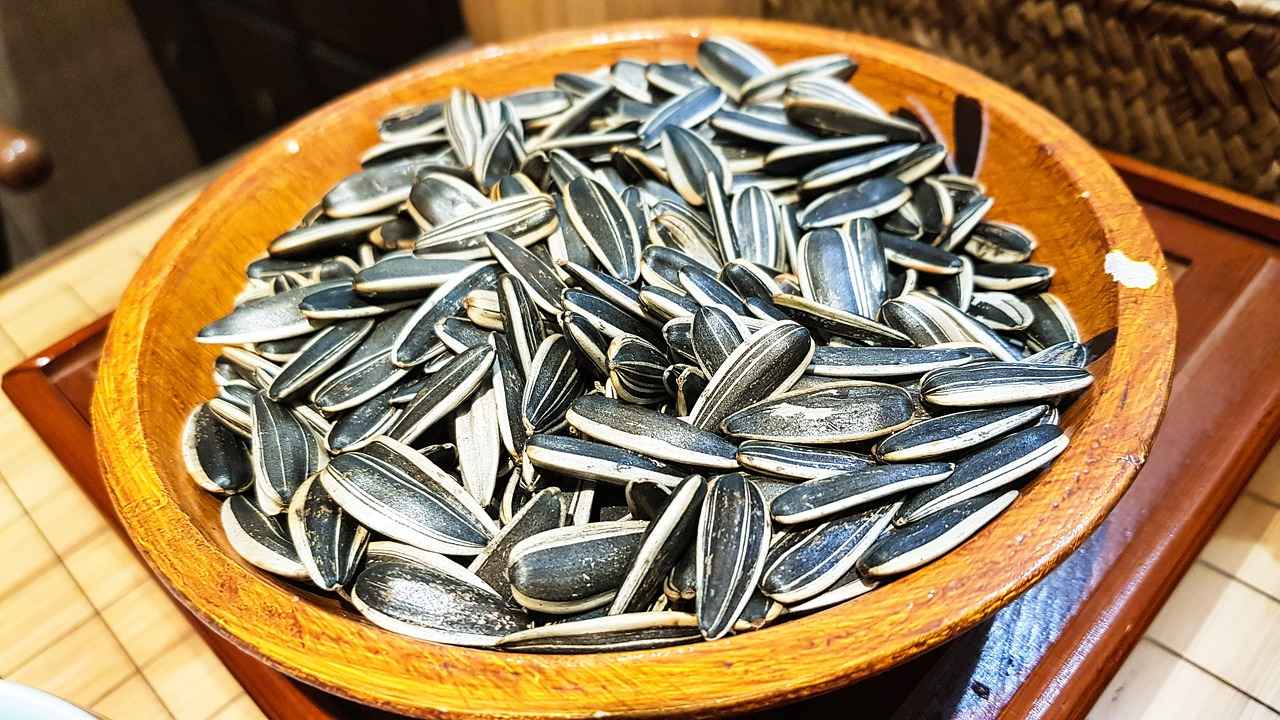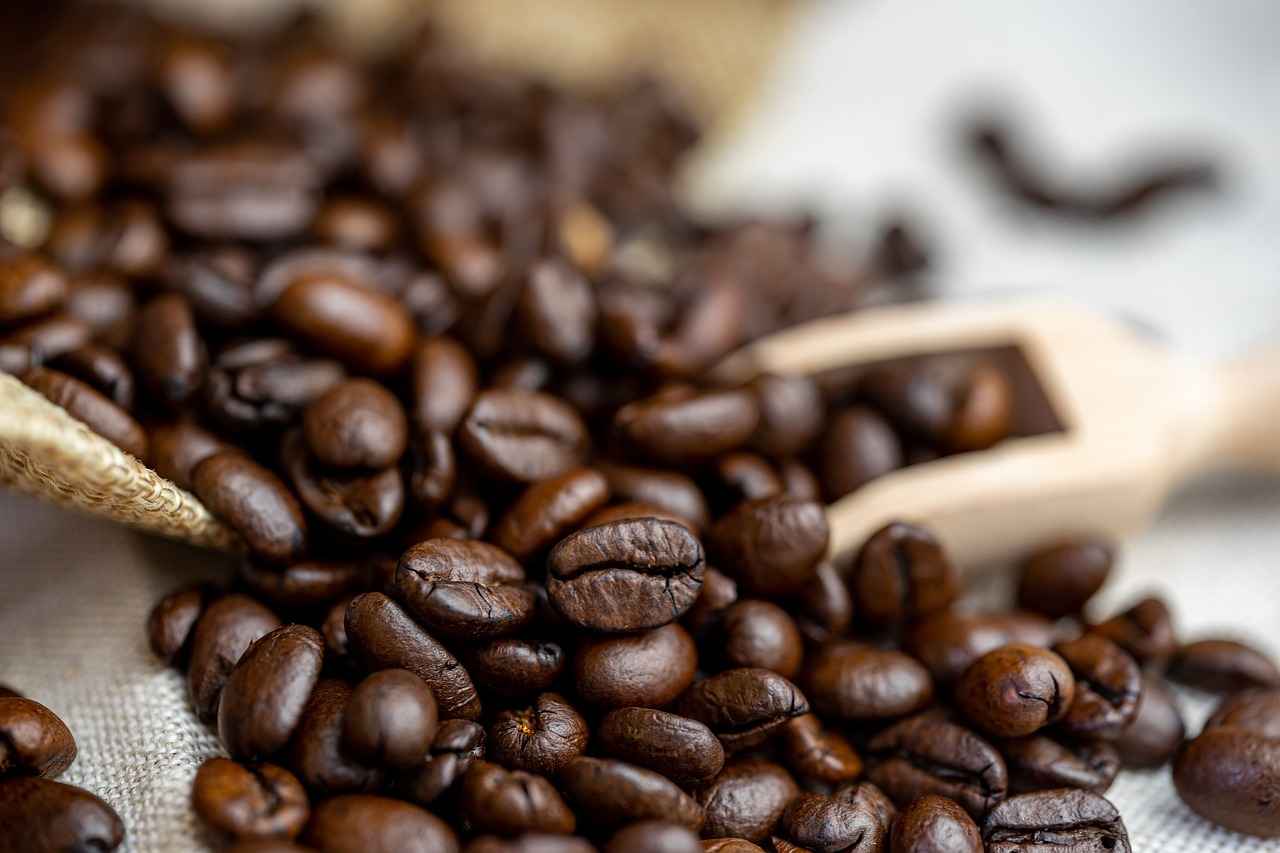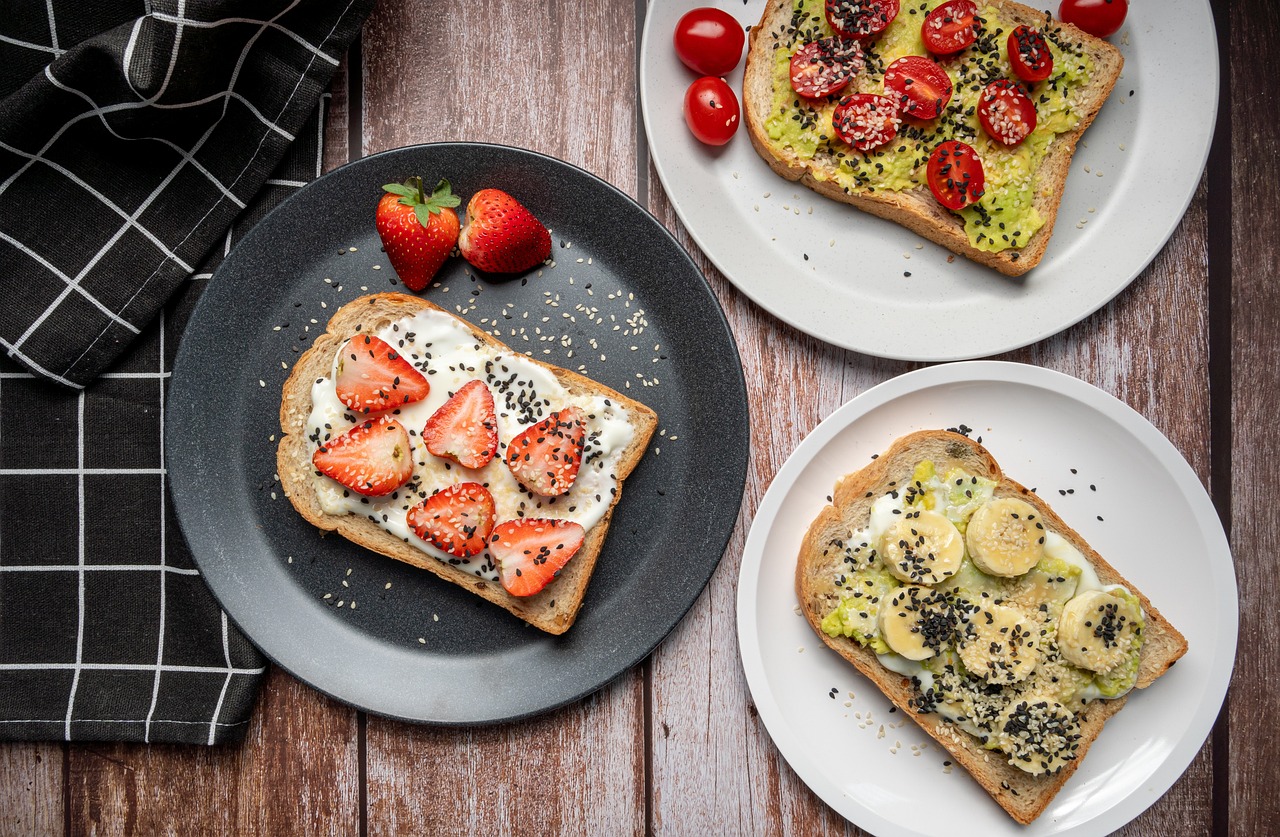Chia seeds have gained immense popularity in recent years as a superfood, celebrated for their numerous health benefits and versatile culinary uses. These tiny seeds, which come from the Salvia hispanica plant, are packed with essential nutrients that can significantly enhance your overall well-being. In this article, we will delve into the remarkable benefits of chia seeds, their nutritional profile, and practical tips for incorporating them into your daily meals.
Chia seeds are small, oval-shaped seeds that are rich in omega-3 fatty acids, fiber, and protein. They are native to Mexico and Guatemala and have been a staple in the diets of ancient civilizations. Today, they are recognized as a nutrient-dense superfood that can contribute to a healthier lifestyle.
Chia seeds are deemed a superfood due to their impressive nutritional profile. They are high in essential nutrients that support various bodily functions and promote overall health.
- Calcium: Important for bone health.
- Magnesium: Supports muscle and nerve function.
- Antioxidants: Help combat oxidative stress.
Chia seeds are one of the best plant-based sources of omega-3 fatty acids, which are crucial for maintaining a healthy heart and brain function. These healthy fats can help lower cholesterol levels and reduce inflammation.
The antioxidants found in chia seeds help protect the body from free radicals, reducing the risk of chronic diseases and inflammation.
Incorporating chia seeds into your diet can lead to a variety of health benefits, including:
Regular consumption of chia seeds can contribute to better heart health by lowering cholesterol and blood pressure levels.
The high fiber content in chia seeds aids digestion and promotes a feeling of fullness, making them an excellent addition to any weight management plan.
There are countless ways to enjoy chia seeds in your daily meals. Here are some practical suggestions:
Chia pudding is a simple yet delicious dish that can be customized with various flavors. Mix chia seeds with your choice of milk and let them sit overnight. Add fruits, nuts, or spices for a nutritious breakfast or snack.
Blend chia seeds into your smoothies for added texture and nutrition without altering the flavor. They can be easily incorporated into any smoothie recipe.
While chia seeds are generally safe for most people, some may experience digestive issues if consumed in excess. It’s important to introduce them gradually into your diet.
Some individuals may experience bloating or gas when consuming chia seeds, especially if they do not drink enough water.
Although rare, some people may have allergies to chia seeds. Monitor for any adverse reactions when trying them for the first time.
When purchasing chia seeds, opt for high-quality options to maximize their health benefits. Look for organic, non-GMO seeds from reputable sources.
Both online retailers and local health food stores offer chia seeds. Compare prices and quality to find the best option for your needs.
Ensure that the chia seeds you buy are certified organic or non-GMO to guarantee quality and safety.

What Are Chia Seeds?
Chia seeds are incredibly small, yet they pack a powerful nutritional punch. Sourced from the Salvia hispanica plant, these seeds have gained immense popularity in health and wellness circles. Their nutrient density makes them an ideal addition to any diet, particularly for those seeking to enhance their overall health.
Chia seeds are tiny, oval-shaped seeds that come in various colors, including white, black, and brown. They are native to Mexico and Guatemala and have been consumed for centuries due to their numerous health benefits. These seeds are particularly rich in omega-3 fatty acids, fiber, and protein, making them a popular choice among health enthusiasts.
Chia seeds are often labeled as a superfood because of their impressive nutritional profile. They contain a unique combination of essential nutrients that contribute to overall well-being. Here are some reasons why they are considered a superfood:
- High in Nutrients: Chia seeds are loaded with calcium, magnesium, and antioxidants, which are vital for bone health and reducing oxidative stress.
- Rich in Omega-3 Fatty Acids: They are one of the best plant-based sources of omega-3s, which are essential for maintaining heart health and supporting cognitive function.
- Loaded with Antioxidants: The antioxidants found in chia seeds help combat free radicals, reducing inflammation and lowering the risk of chronic diseases.
Incorporating chia seeds into your diet can lead to a multitude of health benefits. Let’s explore some of the key advantages:
The high levels of omega-3 fatty acids in chia seeds can help lower cholesterol levels and reduce the risk of heart disease, promoting overall cardiovascular health.
Chia seeds are exceptionally high in fiber, which aids digestion and promotes a feeling of fullness. This makes them a valuable ally for those looking to manage their weight effectively.
Adding chia seeds to your meals is both easy and delicious. Here are some practical ways to incorporate them into your daily diet:
- Chia Pudding: Combine chia seeds with your choice of milk or yogurt and let them soak overnight. Add fruits, nuts, or spices for a tasty breakfast or snack.
- Smoothies: Blend chia seeds into your favorite smoothies for added texture and nutrition without altering the flavor.
- Salads: Sprinkle chia seeds on salads for a crunchy texture and nutritional boost.
While chia seeds are generally safe for most individuals, some may experience digestive issues if consumed in large quantities. It’s important to introduce them gradually into your diet to avoid any discomfort.
Some people may experience bloating or gas when consuming chia seeds, especially if they are not adequately hydrated. It’s crucial to drink plenty of water when incorporating these seeds into your diet.
Although rare, some individuals may have allergies to chia seeds. It’s vital to monitor for any adverse reactions when trying them for the first time.
Finding high-quality chia seeds is essential for maximizing their health benefits. Look for organic, non-GMO options from reputable sources.
Both online retailers and local health food stores offer chia seeds. It’s advisable to compare prices and quality before making a purchase to ensure you are getting the best product.
When buying chia seeds, look for certifications such as organic or non-GMO to ensure you are getting a quality product that aligns with your health goals.

Why Are Chia Seeds Considered a Superfood?
Chia seeds have gained immense popularity in recent years, often being labeled as a superfood due to their remarkable health benefits and nutritional profile. These tiny seeds, derived from the Salvia hispanica plant, are not only versatile but also packed with essential nutrients that can significantly enhance your overall well-being. In this article, we will explore the reasons behind the superfood status of chia seeds, focusing on their unique properties and health advantages.
What Nutrients Make Chia Seeds a Superfood?
Chia seeds are a powerhouse of nutrients. They are particularly high in:
- Omega-3 Fatty Acids: These essential fats are crucial for brain health, reducing inflammation, and supporting heart health.
- Dietary Fiber: With about 11 grams of fiber per ounce, chia seeds promote digestive health and help maintain a healthy weight.
- Protein: Chia seeds contain about 4 grams of protein per ounce, making them an excellent addition to vegetarian and vegan diets.
- Vitamins and Minerals: They are rich in calcium, magnesium, and phosphorus, which are vital for bone health and metabolic functions.
How Do Chia Seeds Support Overall Health?
Incorporating chia seeds into your diet can lead to numerous health benefits:
- Heart Health: The omega-3 fatty acids in chia seeds help lower cholesterol levels and reduce the risk of heart disease, promoting cardiovascular health.
- Weight Management: Their high fiber content aids in digestion and promotes a feeling of fullness, making it easier to manage weight effectively.
- Blood Sugar Control: Chia seeds can help stabilize blood sugar levels, which is beneficial for individuals with diabetes or those looking to maintain steady energy levels.
Are There Any Unique Properties of Chia Seeds?
One of the most fascinating aspects of chia seeds is their ability to absorb liquid. When soaked, they can absorb up to 12 times their weight in water, forming a gel-like substance. This property not only enhances hydration but also slows down the digestion of carbohydrates, leading to sustained energy release.
How Can You Incorporate Chia Seeds into Your Diet?
Adding chia seeds to your meals is simple and versatile:
- Chia Pudding: Combine chia seeds with your choice of milk or yogurt, let it sit overnight, and enjoy a nutritious breakfast topped with fruits and nuts.
- Smoothies: Blend chia seeds into your favorite smoothies for added texture and nutrition without altering the flavor.
- Baking: Incorporate chia seeds into baked goods, such as muffins and bread, for an extra nutrient boost.
What Are the Potential Side Effects of Chia Seeds?
While chia seeds are generally safe for most people, some may experience digestive discomfort if consumed in excess. It’s important to introduce them gradually into your diet and ensure adequate hydration to avoid bloating or gas.
Where to Buy Quality Chia Seeds?
To maximize the health benefits of chia seeds, opt for high-quality, organic, and non-GMO options. You can find them at health food stores, supermarkets, or online retailers. Always check for certifications to ensure you are purchasing a quality product.
In summary, the nutritional density and health benefits of chia seeds truly justify their superfood label. By incorporating these seeds into your daily diet, you can enjoy a variety of health advantages that support your overall well-being.
High in Nutrients
Chia seeds are not just a trendy addition to health foods; they are a powerhouse of nutrients that can significantly enhance your diet. These tiny seeds, derived from the Salvia hispanica plant, are packed with essential vitamins and minerals that are crucial for maintaining overall health. Among their many benefits, chia seeds contain significant amounts of calcium, magnesium, and antioxidants, which play vital roles in promoting bone health and reducing oxidative stress in the body.
Calcium is essential for building and maintaining strong bones. It is also crucial for muscle function, nerve signaling, and blood clotting. In fact, a deficiency in calcium can lead to severe health issues, including osteoporosis, especially in older adults. On the other hand, magnesium is involved in over 300 biochemical reactions in the body. It helps regulate muscle and nerve function, blood sugar levels, and blood pressure, making it vital for overall health.
Antioxidants are compounds that help neutralize harmful free radicals in the body. These free radicals can contribute to oxidative stress, which is linked to various chronic diseases, including heart disease, cancer, and neurodegenerative disorders. By including chia seeds in your diet, you can increase your intake of antioxidants, which can help protect your body from these harmful effects.
In addition to their impressive calcium and magnesium content, chia seeds are also an excellent source of fiber, protein, and omega-3 fatty acids. The high fiber content aids in digestion and promotes a feeling of fullness, making chia seeds a great addition for those looking to manage their weight. Furthermore, the protein content supports muscle repair and growth, making them a popular choice among athletes and fitness enthusiasts.
- Soak Them: Soaking chia seeds in water or milk before consumption can enhance their digestibility and nutrient absorption.
- Combine with Other Foods: Adding chia seeds to smoothies, yogurt, or oatmeal can boost the nutritional profile of your meals.
- Use as a Thickener: Chia seeds can be used as a natural thickener in soups and sauces due to their gel-like consistency when soaked.
Chia seeds are beneficial for a wide range of individuals, including those looking to improve their bone health, manage their weight, or enhance their overall nutritional intake. They are particularly advantageous for vegetarians and vegans, as they provide a plant-based source of omega-3 fatty acids and protein.
While chia seeds are generally safe for most people, some may experience digestive issues if consumed in large quantities. It’s essential to start with small amounts and ensure adequate hydration, as chia seeds absorb water and expand in the stomach. Additionally, individuals with allergies to similar seeds should exercise caution.
In summary, chia seeds are a nutrient-dense superfood that can significantly contribute to your health. Their high levels of calcium, magnesium, and antioxidants make them an excellent choice for supporting bone health and combating oxidative stress. By incorporating chia seeds into your diet, you can enjoy a myriad of health benefits while enhancing the flavor and nutrition of your meals.
Rich in Omega-3 Fatty Acids
Chia seeds are renowned for being one of the most potent plant-based sources of omega-3 fatty acids, specifically alpha-linolenic acid (ALA). These essential fatty acids are crucial for maintaining heart health and supporting cognitive function. Unlike the omega-3s found in fish, chia seeds offer a vegetarian option, making them an excellent choice for those following a plant-based diet.
Research has shown that omega-3 fatty acids play a significant role in reducing inflammation throughout the body. This is important because chronic inflammation is linked to various health issues, including heart disease, diabetes, and even certain cancers. By incorporating chia seeds into your diet, you can help combat these inflammatory processes, promoting overall wellness.
Furthermore, omega-3 fatty acids are known to support brain health. They are essential for the development and maintenance of brain cells, which can enhance memory and cognitive function. Some studies suggest that a diet rich in omega-3s may even lower the risk of neurodegenerative diseases such as Alzheimer’s and dementia.
Another remarkable benefit of omega-3 fatty acids is their impact on heart health. Regular consumption of chia seeds can help lower triglyceride levels and reduce blood pressure, both of which are risk factors for heart disease. The heart-healthy properties of these seeds make them a valuable addition to any diet.
In addition to their omega-3 content, chia seeds are also rich in fiber, protein, and various essential minerals. This combination not only enhances their nutritional profile but also contributes to feelings of fullness, making them an excellent ally for those looking to manage their weight.
To maximize the benefits of omega-3 fatty acids, consider adding chia seeds to your daily meals. Here are some practical ways to incorporate them:
- Chia Puddings: Combine chia seeds with almond milk or yogurt, add your favorite fruits, and let it sit overnight for a nutritious breakfast.
- Smoothies: Blend a tablespoon of chia seeds into your morning smoothie for an added nutritional boost without altering the flavor.
- Baked Goods: Incorporate chia seeds into muffins, bread, or energy bars for a healthy twist.
In conclusion, chia seeds stand out as a nutrient powerhouse, particularly due to their rich omega-3 fatty acid content. They not only support heart and brain health but also provide a myriad of other health benefits. By integrating these tiny seeds into your diet, you can enhance your overall nutrition and well-being.
Loaded with Antioxidants
Chia seeds are not only a nutritional powerhouse, but they are also rich in antioxidants that play a vital role in maintaining overall health. Antioxidants are compounds that help neutralize free radicals in the body, which are unstable molecules that can cause cellular damage and contribute to various chronic diseases. By incorporating chia seeds into your diet, you can enhance your body’s natural defenses against oxidative stress.
One of the most significant benefits of the antioxidants found in chia seeds is their ability to reduce inflammation. Chronic inflammation is linked to a myriad of health issues, including heart disease, diabetes, and certain cancers. The antioxidants in chia seeds, such as quercetin, chlorogenic acid, and caffeic acid, work synergistically to combat these inflammatory processes, promoting a healthier internal environment.
Moreover, the high antioxidant content of chia seeds can also contribute to improved skin health. Free radicals can accelerate the aging process and lead to skin issues such as wrinkles and pigmentation. By consuming chia seeds regularly, you may help protect your skin from oxidative damage, promoting a more youthful appearance.
In addition to their anti-inflammatory properties, the antioxidants in chia seeds can also support heart health. Studies have shown that diets rich in antioxidants can lower blood pressure and improve cholesterol levels. This is particularly important for individuals at risk of cardiovascular diseases. By integrating chia seeds into your meals, you can take a proactive step towards maintaining a healthy heart.
Another compelling reason to include chia seeds in your diet is their potential to enhance cognitive function. Research suggests that antioxidants can play a role in protecting the brain from age-related decline and neurodegenerative diseases. The omega-3 fatty acids found in chia seeds, combined with their antioxidant properties, create a powerful duo that supports brain health and cognitive performance.
How to Maximize the Antioxidant Benefits of Chia Seeds?
- Soak Chia Seeds: Soaking chia seeds in water or milk allows them to expand and release more nutrients, enhancing their antioxidant properties.
- Combine with Other Antioxidant-Rich Foods: Pair chia seeds with fruits like berries or nuts to amplify their health benefits.
- Use in Smoothies: Adding chia seeds to smoothies can boost the antioxidant content without altering the flavor significantly.
In conclusion, chia seeds are a remarkable source of antioxidants that can significantly contribute to reducing inflammation and the risk of chronic diseases. By incorporating these tiny seeds into your daily diet, you can harness their full potential to improve your health and well-being. Whether you sprinkle them on salads, blend them into smoothies, or enjoy them in puddings, chia seeds are a versatile addition that can transform your meals and enhance your nutritional intake.
Excellent Source of Fiber
Chia seeds are increasingly recognized for their impressive health benefits, particularly due to their high fiber content. These tiny seeds, derived from the Salvia hispanica plant, are not only versatile but also a powerhouse of nutrients that can significantly enhance your diet.
Fiber plays a crucial role in maintaining digestive health. It helps to regulate bowel movements, preventing constipation and promoting a healthy gut. Additionally, a diet rich in fiber can help lower cholesterol levels, control blood sugar levels, and aid in weight management.
Chia seeds are remarkably high in fiber, containing about 10 grams of fiber per ounce (28 grams). This makes them one of the richest sources of fiber available. The fiber in chia seeds is predominantly soluble fiber, which absorbs water and forms a gel-like substance in the stomach. This property not only aids digestion but also promotes a feeling of fullness, which can be beneficial for those looking to manage their weight.
- Improved Digestion: The soluble fiber in chia seeds helps to soften stool and promote regular bowel movements.
- Weight Management: By enhancing satiety, chia seeds can help control appetite and reduce overall caloric intake.
- Heart Health: A high-fiber diet is linked to lower cholesterol levels, which can reduce the risk of heart disease.
- Blood Sugar Control: Fiber slows down the absorption of sugar, helping to maintain stable blood sugar levels.
Adding chia seeds to your meals is simple and can be done in various ways:
- Chia Pudding: Mix chia seeds with your choice of milk or yogurt and let it sit overnight. Add fruits, nuts, or honey for flavor.
- Smoothies: Blend chia seeds into your favorite smoothie for an added nutritional boost without changing the flavor.
- Baking: Incorporate chia seeds into baked goods like muffins, bread, or pancakes for added texture and fiber.
While chia seeds are generally safe for most people, it’s important to consume them in moderation. Start with a small amount and gradually increase your intake to allow your digestive system to adjust. Additionally, ensure you drink plenty of water when consuming chia seeds, as they absorb liquid and expand in the stomach.
In summary, chia seeds are an excellent source of fiber, providing numerous health benefits that can enhance your overall well-being. Their ability to promote satiety, improve digestion, and support heart health makes them a valuable addition to any diet. By incorporating chia seeds into your meals, you can take a significant step toward achieving your health and nutrition goals.
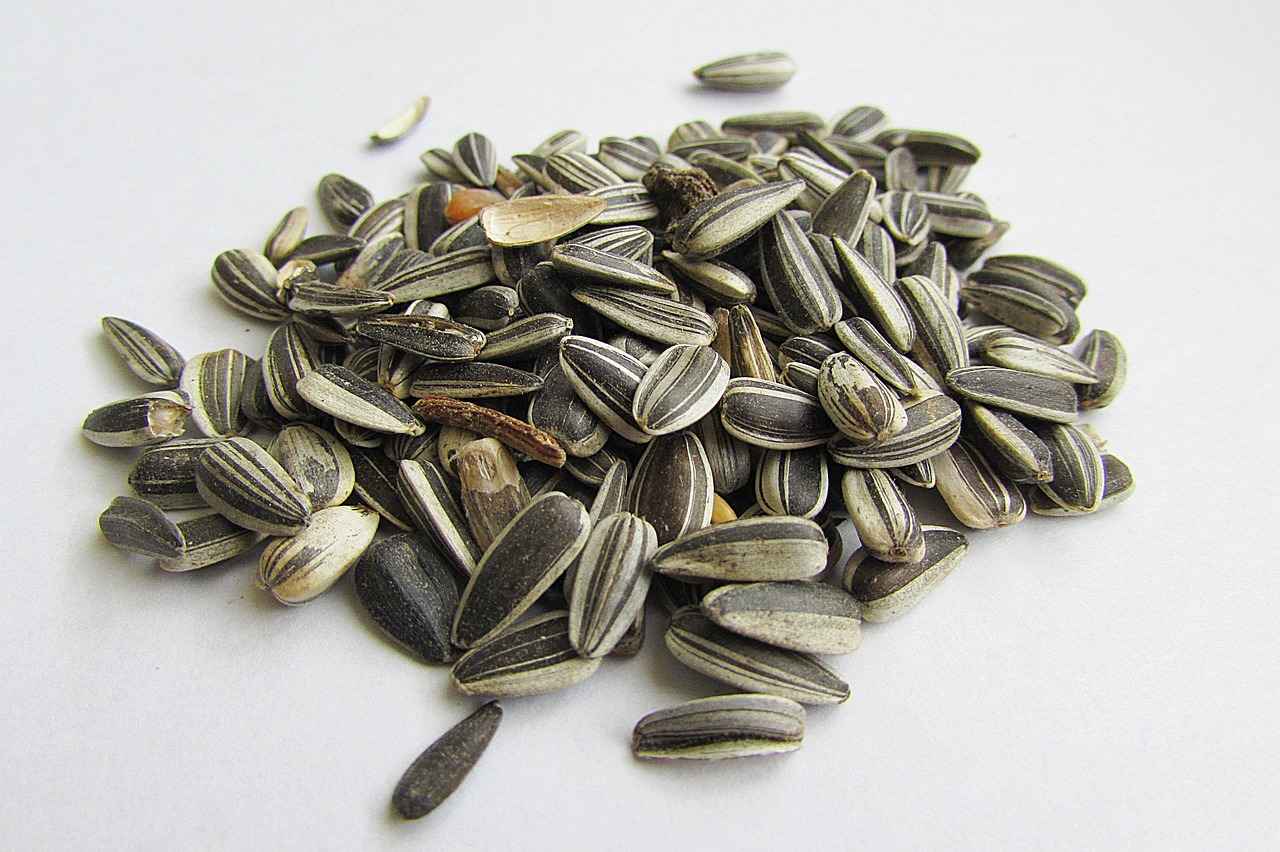
How Do Chia Seeds Benefit Your Health?
Chia seeds have gained immense popularity in recent years, and for good reason. These tiny seeds are packed with nutrients and offer a range of health benefits that can significantly enhance your overall well-being. In this section, we will explore how chia seeds can positively impact your health and why they should be a staple in your diet.
Incorporating chia seeds into your diet can lead to numerous health benefits, including improved heart health, better digestion, and enhanced energy levels. Let’s delve deeper into these benefits:
Chia seeds are rich in omega-3 fatty acids, which play a crucial role in maintaining heart health. These fatty acids help reduce inflammation and lower cholesterol levels, which can decrease the risk of heart disease. Studies have shown that regular consumption of omega-3s can lead to improved cardiovascular health and better blood circulation.
The high fiber content in chia seeds is another reason they are considered a superfood. Just two tablespoons of chia seeds contain approximately 10 grams of fiber. This fiber aids in digestion by promoting regular bowel movements and preventing constipation. Additionally, the soluble fiber in chia seeds can help regulate blood sugar levels, making them a great choice for those managing diabetes.
Chia seeds are an excellent source of energy. They provide a slow release of energy due to their high fiber and protein content, which can help sustain you throughout the day. Many athletes incorporate chia seeds into their diets for this reason, as they can provide the necessary energy for prolonged physical activity without the crash that comes from sugary snacks.
For those looking to manage their weight, chia seeds can be a valuable ally. The combination of protein and fiber helps you feel fuller for longer, reducing the likelihood of overeating. When consumed before meals, chia seeds can expand in your stomach, creating a feeling of fullness that can assist in portion control.
Chia seeds are also a fantastic source of essential minerals such as calcium, magnesium, and phosphorus, which are vital for maintaining strong bones. In fact, they contain more calcium than milk, making them a perfect addition to vegetarian and vegan diets aiming to meet their calcium needs.
Adding chia seeds to your meals is simple and versatile. They can be sprinkled on salads, blended into smoothies, or used to make delicious chia puddings. Here are some practical ideas:
- Chia Pudding: Mix chia seeds with your choice of milk or yogurt and let them soak overnight. Add fruits, nuts, or honey for flavor.
- Smoothies: Blend chia seeds into your favorite smoothie for added texture and nutrition.
- Baking: Incorporate chia seeds into muffins, breads, or energy bars for a nutrient boost.
In summary, the health benefits of chia seeds are numerous and significant. From improving heart health to aiding digestion and boosting energy levels, these tiny seeds can have a profound impact on your overall health. By incorporating chia seeds into your daily diet, you can take a simple yet effective step towards a healthier lifestyle.
Heart Health Benefits
Chia seeds, often hailed as a superfood, are tiny yet powerful seeds packed with nutrients that can significantly benefit your health. Among their many advantages, the impact of omega-3 fatty acids on heart health is particularly noteworthy. These essential fatty acids play a crucial role in maintaining cardiovascular well-being and can help reduce the risk of heart disease.
Omega-3 fatty acids are known for their anti-inflammatory properties and their ability to lower cholesterol levels. Regular consumption of chia seeds can lead to:
- Lowering LDL Cholesterol: The high levels of omega-3s in chia seeds can help reduce low-density lipoprotein (LDL) cholesterol, often referred to as “bad” cholesterol. This is vital because elevated LDL levels are linked to an increased risk of heart disease.
- Increasing HDL Cholesterol: Chia seeds can also support the increase of high-density lipoprotein (HDL) cholesterol, known as “good” cholesterol. Higher HDL levels are associated with a decreased risk of heart-related issues.
- Reducing Triglycerides: Omega-3 fatty acids are effective in lowering triglyceride levels, a type of fat found in the blood that can contribute to heart disease when elevated.
Aside from omega-3 fatty acids, chia seeds are rich in other nutrients that contribute to heart health:
- Fiber: The high fiber content in chia seeds aids in digestion and helps maintain a healthy weight, both of which are essential for heart health.
- Antioxidants: Chia seeds are loaded with antioxidants, which help combat oxidative stress and inflammation, further protecting the heart.
- Magnesium: This mineral plays a vital role in regulating blood pressure, and chia seeds are an excellent source of magnesium.
Integrating chia seeds into your diet is simple and delicious. Here are some practical ideas:
- Chia Seed Pudding: Combine chia seeds with your choice of milk or yogurt and let them soak overnight. Add fruits and nuts for a nutritious breakfast.
- Smoothies: Add a tablespoon of chia seeds to your morning smoothie for an extra boost of omega-3s.
- Baking: Incorporate chia seeds into baked goods like muffins or bread for added nutrition.
While chia seeds are generally safe for most people, there are a few considerations to keep in mind:
- Hydration: Chia seeds absorb a significant amount of water. It’s essential to stay hydrated when consuming them to avoid digestive discomfort.
- Allergies: Although rare, some individuals may have allergies to chia seeds. Monitor any adverse reactions if you are trying them for the first time.
Incorporating chia seeds into your diet can be a simple yet effective way to enhance your heart health. With their rich content of omega-3 fatty acids, fiber, and various essential nutrients, chia seeds can play a significant role in reducing the risk of heart disease and promoting overall cardiovascular wellness.
Weight Management Support
When it comes to managing weight effectively, chia seeds have emerged as a powerful ally. Their unique composition, particularly their high fiber content, plays a crucial role in promoting feelings of fullness and curbing appetite. This article delves into how chia seeds can support weight management and enhance your overall health.
Chia seeds are often hailed as a superfood due to their impressive nutritional profile. One of their standout features is their remarkable fiber content, which can reach up to 34 grams per 100 grams. This high fiber level is instrumental in regulating appetite and promoting satiety.
- Increased Satiety: The soluble fiber in chia seeds absorbs water and expands in the stomach, leading to a prolonged feeling of fullness.
- Slows Digestion: Fiber slows down the digestive process, which helps stabilize blood sugar levels and reduces hunger pangs.
- Reduces Cravings: By keeping you feeling full longer, chia seeds can help minimize unhealthy snacking between meals.
Adding chia seeds to your meals is simple and versatile. Here are some effective methods:
- Chia Pudding: Mix chia seeds with your choice of milk or yogurt, let them soak overnight, and enjoy a delicious breakfast or snack.
- Smoothies: Blend chia seeds into your smoothies for added texture and nutritional benefits without altering the flavor.
- Baked Goods: Incorporate chia seeds into muffins, bread, or energy bars for a nutritious boost.
While chia seeds are generally safe for most people, it’s important to consume them in moderation. Some individuals may experience digestive discomfort if they are not properly hydrated. Here are some considerations:
- Hydration: Chia seeds absorb a significant amount of water; therefore, it’s essential to drink plenty of fluids when consuming them.
- Gradual Introduction: Start with small amounts to allow your body to adjust, especially if you are not accustomed to a high-fiber diet.
Incorporating chia seeds into your diet can be a game-changer for weight management. Their high fiber content not only helps curb appetite but also enhances overall satiety, making it easier to stick to your dietary goals. Whether you enjoy them in puddings, smoothies, or baked goods, chia seeds offer a delicious and nutritious way to support your weight management journey.
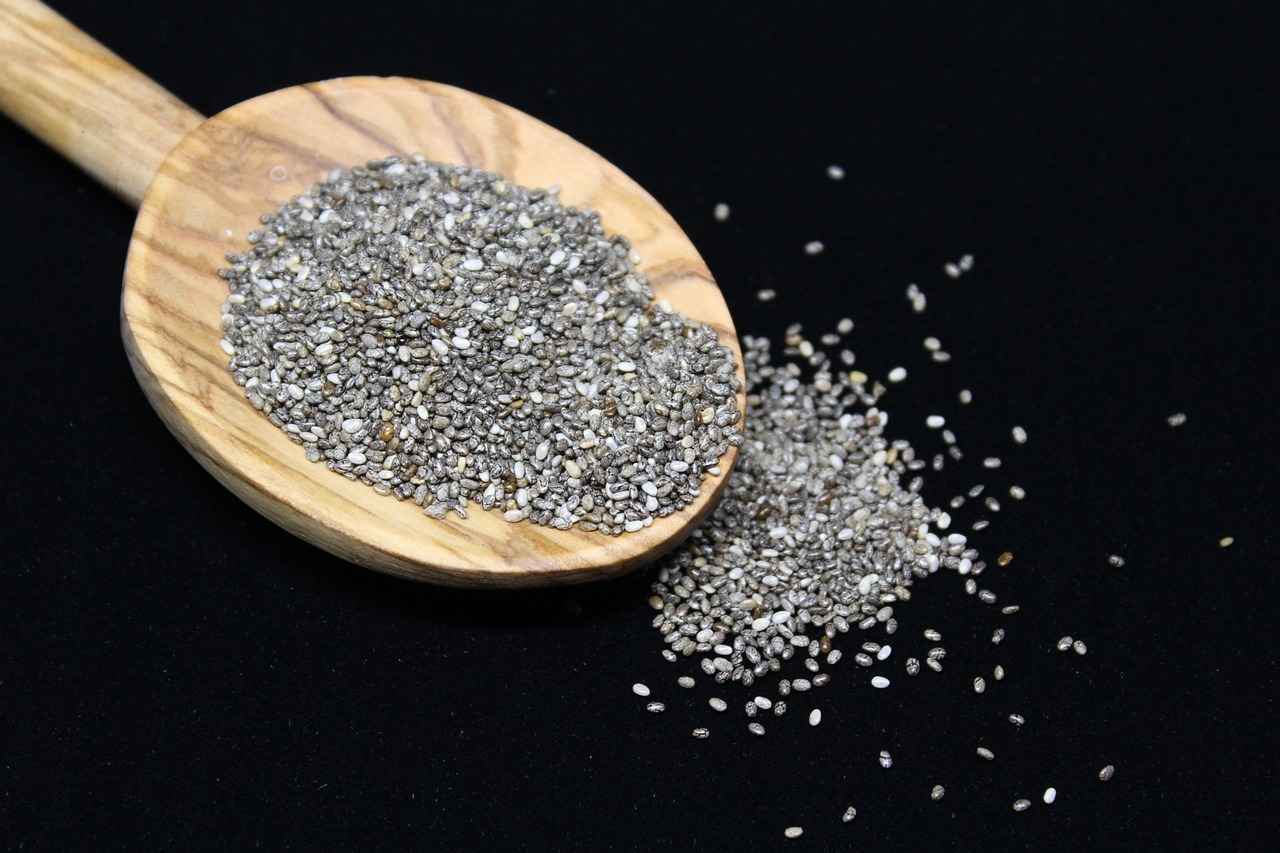
How to Incorporate Chia Seeds into Your Diet?
Chia seeds are a versatile superfood that can easily be incorporated into various meals, enhancing both nutrition and flavor. Their mild taste makes them an excellent addition to a variety of dishes, allowing you to reap the numerous health benefits they offer. Here’s how you can seamlessly add chia seeds to your daily diet.
- In Smoothies: Adding chia seeds to your smoothies not only boosts the nutritional profile but also adds a pleasant texture. Simply blend a tablespoon of chia seeds with your favorite fruits and vegetables for a nutrient-packed drink.
- Chia Pudding: This is a popular way to enjoy chia seeds. Mix chia seeds with your choice of milk (dairy or plant-based) and let them soak overnight. In the morning, add toppings like fruits, nuts, or a drizzle of honey for a delicious breakfast or snack.
- In Salads: Sprinkle chia seeds over salads for an added crunch. They can enhance the flavor and provide a boost of omega-3 fatty acids, making your salad more nutritious.
- Baked Goods: Incorporate chia seeds into your baking recipes. Whether you’re making muffins, bread, or cookies, adding chia seeds can improve the fiber content and provide a unique texture.
- As an Egg Substitute: For those following a vegan diet, chia seeds can be used as a binding agent. Combine one tablespoon of chia seeds with three tablespoons of water, let it sit until it becomes gel-like, and use it in place of eggs in recipes.
The reasons to include chia seeds in your diet are plentiful. They are an excellent source of fiber, which aids in digestion and promotes a feeling of fullness. This can be particularly beneficial for those looking to manage their weight. Additionally, chia seeds are rich in omega-3 fatty acids, which are essential for heart health and cognitive function.
Chia seeds have a neutral flavor profile, meaning they can be added to both sweet and savory dishes without altering the taste. This flexibility allows you to experiment with different recipes while still enjoying the health benefits. Their unique ability to absorb liquid and form a gel-like consistency can also enhance the texture of your meals, making them more satisfying.
While chia seeds are generally safe for most people, it’s important to consume them in moderation. Start with a small amount and gradually increase your intake to avoid any potential digestive discomfort. Additionally, make sure to drink plenty of water when consuming chia seeds, as they can absorb a significant amount of liquid.
When purchasing chia seeds, look for organic and non-GMO options to ensure you are getting a high-quality product. You can find chia seeds at health food stores, supermarkets, and online retailers. Always check for certifications and read reviews to ensure you are buying from reputable sources.
Incorporating chia seeds into your diet is not only easy but also rewarding. With their numerous health benefits and versatility, they can transform your meals into nutritious powerhouses. Start experimenting with chia seeds today and enjoy the multitude of ways they can enhance your overall health!
Chia Pudding Recipes
Chia pudding is not just a simple dish; it’s a nutrient-packed delight that can be customized in countless ways. This versatile recipe allows you to create a healthy breakfast or snack that caters to your taste buds and nutritional needs.
Chia pudding is an excellent choice for anyone looking to incorporate more fiber, protein, and healthy fats into their diet. With its unique ability to absorb liquid and form a gel-like consistency, chia seeds create a satisfying texture that can be enjoyed in various flavors.
Creating chia pudding is incredibly easy and requires minimal ingredients. Here’s a basic recipe to get you started:
- Ingredients:
- 1/4 cup chia seeds
- 1 cup almond milk (or any milk of your choice)
- 1-2 tablespoons sweetener (honey, maple syrup, or agave)
- 1 teaspoon vanilla extract (optional)
- Instructions:
- In a bowl, mix the chia seeds, almond milk, sweetener, and vanilla extract.
- Stir well to combine and prevent clumping.
- Let the mixture sit for about 5 minutes, then stir again.
- Cover and refrigerate for at least 2 hours or overnight for best results.
- Serve chilled, topped with your favorite fruits and nuts.
The beauty of chia pudding lies in its ability to be flavored in numerous ways. Here are some delicious variations:
- Chocolate Chia Pudding: Add 2 tablespoons of cocoa powder and a bit more sweetener for a rich, chocolatey treat.
- Berry Bliss: Mix in a handful of blended berries before refrigerating. Top with fresh berries for added texture.
- Coconut Delight: Use coconut milk instead of almond milk and sprinkle shredded coconut on top.
- Spiced Pumpkin: Add pumpkin puree and a dash of cinnamon for a seasonal twist.
Not only is chia pudding delicious, but it also comes with numerous health benefits:
- High in Omega-3 Fatty Acids: Chia seeds are one of the best plant-based sources of omega-3s, promoting heart health.
- Rich in Antioxidants: These seeds help combat oxidative stress and inflammation in the body.
- Supports Digestive Health: The high fiber content aids digestion and promotes a feeling of fullness.
To ensure your chia pudding turns out perfectly every time, keep these tips in mind:
- Use a whisk or fork to thoroughly mix the chia seeds with the liquid to avoid clumps.
- Experiment with different types of milk to find your favorite flavor and texture.
- Let it sit overnight for the best results, allowing the seeds to fully absorb the liquid.
Chia pudding is a delicious and nutritious way to start your day or enjoy as a snack. With endless flavor possibilities, it’s easy to make it your own while reaping the health benefits of chia seeds.
Adding Chia Seeds to Smoothies
Chia seeds have gained popularity as a powerful superfood, and one of the easiest ways to incorporate them into your diet is by adding them to smoothies. This simple addition can significantly enhance the nutritional value of your drink without changing its flavor profile. In this section, we will explore the benefits of adding chia seeds to smoothies and how to do it effectively.
Adding chia seeds to smoothies not only boosts their nutritional content but also improves texture. Here are some reasons why you should consider this addition:
- Increased Nutrient Density: Chia seeds are rich in omega-3 fatty acids, protein, and fiber. By blending them into your smoothie, you enhance its overall nutrient profile.
- Improved Texture: Chia seeds absorb liquid and swell, creating a thicker consistency that can make your smoothie more satisfying and enjoyable.
- Convenient Source of Energy: The combination of protein, fiber, and healthy fats in chia seeds provides a sustained energy release, making your smoothie a perfect pre- or post-workout snack.
- Versatile Flavor Compatibility: Chia seeds have a neutral flavor, allowing them to blend seamlessly with various fruits and vegetables without overpowering the taste.
Incorporating chia seeds into your smoothies is straightforward. Here are some tips to ensure you get the most out of this nutritious addition:
- Start Small: If you’re new to chia seeds, begin with a small amount—about one tablespoon per serving. This allows your digestive system to adjust.
- Soak Before Blending: For a smoother texture, consider soaking chia seeds in water or your smoothie base for about 10-15 minutes before blending. This will help them expand and create a gel-like consistency.
- Experiment with Recipes: Try different combinations of fruits, vegetables, and liquids. Ingredients like spinach, banana, almond milk, and berries work wonderfully with chia seeds.
- Add Other Superfoods: Enhance your smoothie further by including other superfoods like spinach, kale, or protein powder for an extra nutritional boost.
Here are a few smoothie recipes that highlight chia seeds:
1. Berry Chia Smoothie: Blend together 1 cup of mixed berries, 1 banana, 1 tablespoon of chia seeds, and 1 cup of almond milk.2. Green Chia Power Smoothie: Blend 1 cup of spinach, 1 banana, 1 tablespoon of chia seeds, and 1 cup of coconut water.3. Chocolate Chia Delight: Blend 1 banana, 1 tablespoon of cocoa powder, 1 tablespoon of chia seeds, and 1 cup of oat milk.
These recipes not only taste great but also provide a wealth of nutrients that can help you maintain a healthy diet.
While chia seeds are generally safe for most people, it’s important to keep a few considerations in mind:
- Hydration: Chia seeds absorb a significant amount of liquid. Ensure you drink plenty of water throughout the day to avoid digestive discomfort.
- Gradual Introduction: If you’re new to chia seeds, introduce them gradually into your diet to prevent any digestive issues.
- Allergies: Although rare, be aware of any potential allergies. Monitor your body’s response when trying chia seeds for the first time.
In conclusion, adding chia seeds to smoothies is an effortless way to enhance their nutritional value and texture. With their numerous health benefits and versatility, chia seeds can transform your smoothie into a nourishing powerhouse. Start experimenting today and enjoy the delicious health benefits!
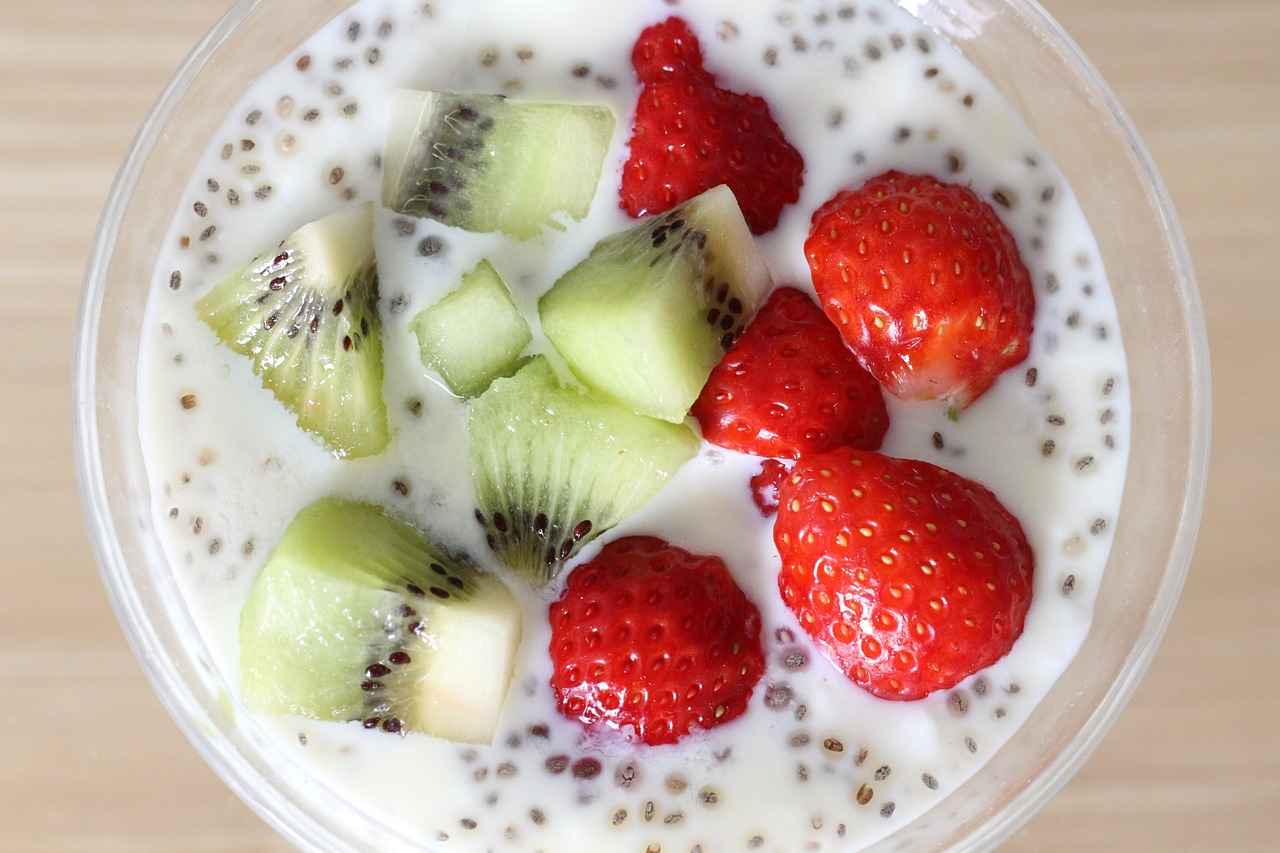
Are There Any Side Effects of Chia Seeds?
Chia seeds are widely celebrated for their numerous health benefits, but like any food, they may have some side effects for certain individuals. Understanding these potential issues is crucial for anyone looking to incorporate chia seeds into their diet.
While chia seeds are generally safe for most people, consuming them in large quantities can lead to digestive discomfort. Some individuals may experience symptoms such as:
- Bloating: This is often due to the high fiber content in chia seeds, which can cause gas buildup in the digestive tract.
- Gas: The fermentation of fiber in the gut may lead to increased gas production.
- Constipation: If not consumed with adequate water, the seeds can absorb liquid and expand, potentially leading to constipation.
To minimize these issues, it is essential to introduce chia seeds gradually into your diet. Start with a small amount, such as one teaspoon, and increase the serving size as your body adjusts.
Here are some practical tips to help prevent digestive issues when consuming chia seeds:
- Stay Hydrated: Always drink plenty of water when consuming chia seeds to help them expand properly in your stomach.
- Soak the Seeds: Soaking chia seeds in water or milk before consumption can help reduce their potential to cause bloating.
- Monitor Your Intake: Keep track of how much you are eating and adjust accordingly if you experience discomfort.
Although rare, some individuals may be allergic to chia seeds. Symptoms of an allergy can include:
- Skin Reactions: Rashes or hives may occur in response to chia seed consumption.
- Respiratory Issues: Some people may experience difficulty breathing or other respiratory symptoms.
If you have a history of food allergies, it’s advisable to consult with a healthcare professional before trying chia seeds for the first time. Always monitor your body’s reaction closely when introducing any new food into your diet.
Chia seeds may also interact with certain medications, particularly those related to blood pressure and blood sugar levels. Due to their high omega-3 fatty acid content, chia seeds can have a natural blood-thinning effect, which may enhance the effects of anticoagulant medications. It is crucial to discuss with your healthcare provider if you are on such medications to avoid any adverse interactions.
In summary, while chia seeds offer many health benefits, it is essential to be aware of the potential side effects, particularly for those with sensitive digestive systems or allergies. By introducing them gradually and following the recommended guidelines, you can enjoy the nutritious advantages of chia seeds without discomfort.
Digestive Concerns
Chia seeds are increasingly becoming a staple in health-conscious diets, but while they offer numerous benefits, some individuals may encounter digestive concerns. Understanding these issues is crucial for anyone looking to incorporate chia seeds into their meals.
Chia seeds are known for their high fiber content, which can be beneficial for digestion. However, when consumed in large quantities or without adequate hydration, they may lead to bloating or gas. This is primarily because chia seeds absorb water and expand significantly in the stomach, which can cause discomfort if the body is not properly hydrated.
For optimal digestion, it is recommended to consume chia seeds with a sufficient amount of water. A general guideline is to soak one tablespoon of chia seeds in at least three tablespoons of water before consuming. This allows the seeds to absorb the water and expand, making them easier to digest.
- Bloating: A feeling of fullness or swelling in the abdomen.
- Gas: Excessive flatulence or discomfort due to trapped air in the digestive tract.
- Constipation: Difficulty in passing stools, which can occur if fiber intake is suddenly increased without adequate hydration.
To enjoy the health benefits of chia seeds while minimizing digestive discomfort, consider the following tips:
- Start Slowly: Gradually introduce chia seeds into your diet. Begin with a small amount (such as half a tablespoon) and increase as your body adjusts.
- Stay Hydrated: Drink plenty of water throughout the day, particularly when consuming chia seeds. This helps the fiber do its job without causing discomfort.
- Mix with Other Foods: Incorporating chia seeds into smoothies, yogurt, or oatmeal can help balance their effects and make them easier to digest.
While digestive issues are the most common concern with chia seeds, it is also important to consider allergies. Although rare, some individuals may have allergic reactions to chia seeds. If you experience symptoms such as itching, swelling, or difficulty breathing after consuming them, seek medical attention immediately.
Chia seeds can be a fantastic addition to a healthy diet, offering numerous health benefits. However, it is essential to be mindful of how you consume them to avoid potential digestive issues. By staying hydrated and introducing them gradually, you can enjoy all the advantages of chia seeds while minimizing discomfort.
Allergy Considerations
Chia seeds are celebrated for their impressive health benefits, but it’s essential to be aware of potential when incorporating them into your diet. While most people can enjoy chia seeds without any issues, a small percentage may experience adverse reactions. Understanding these possibilities can help you make informed decisions about your health.
Allergic reactions to chia seeds can manifest in various ways. Common symptoms include:
- Skin Reactions: Hives, rashes, or eczema may develop after consuming chia seeds.
- Respiratory Issues: Some individuals may experience difficulty breathing, nasal congestion, or asthma-like symptoms.
- Gastrointestinal Distress: Nausea, vomiting, or diarrhea can occur in response to chia seed consumption.
Individuals with existing allergies to other seeds, such as sesame or flaxseed, may be at a higher risk for developing a chia seed allergy. Additionally, those with a history of food allergies should approach chia seeds with caution. It is advisable to consult with a healthcare professional before introducing chia seeds into your diet if you fall into these categories.
When trying chia seeds for the first time, it’s crucial to monitor your body’s response. Here are some tips to help you safely incorporate them:
- Start Small: Begin with a small amount, such as a teaspoon, and gradually increase your intake to assess your tolerance.
- Observe Your Body: Pay close attention to any changes or symptoms that arise after consumption.
- Consult a Professional: If you experience any adverse reactions, seek guidance from a healthcare provider.
If you suspect you are allergic to chia seeds, it’s important to take action:
- Stop Consumption: Immediately discontinue eating chia seeds to prevent further reactions.
- Seek Medical Attention: If symptoms are severe, such as difficulty breathing or swelling, seek emergency medical help.
- Get Tested: Consider seeing an allergist for testing to confirm the allergy and discuss alternatives.
If you find that you are allergic to chia seeds, there are several nutritious alternatives available:
- Flaxseeds: Similar in nutritional profile, flaxseeds are rich in omega-3 fatty acids and fiber.
- Hemp Seeds: These seeds are a great source of protein and healthy fats.
- Sunflower Seeds: Packed with nutrients, sunflower seeds can be a tasty addition to your diet.
In summary, while chia seeds offer numerous health benefits, it’s vital to be aware of potential allergies. By understanding the symptoms, risks, and safe practices for introducing chia seeds into your diet, you can enjoy their nutritional advantages while prioritizing your health.
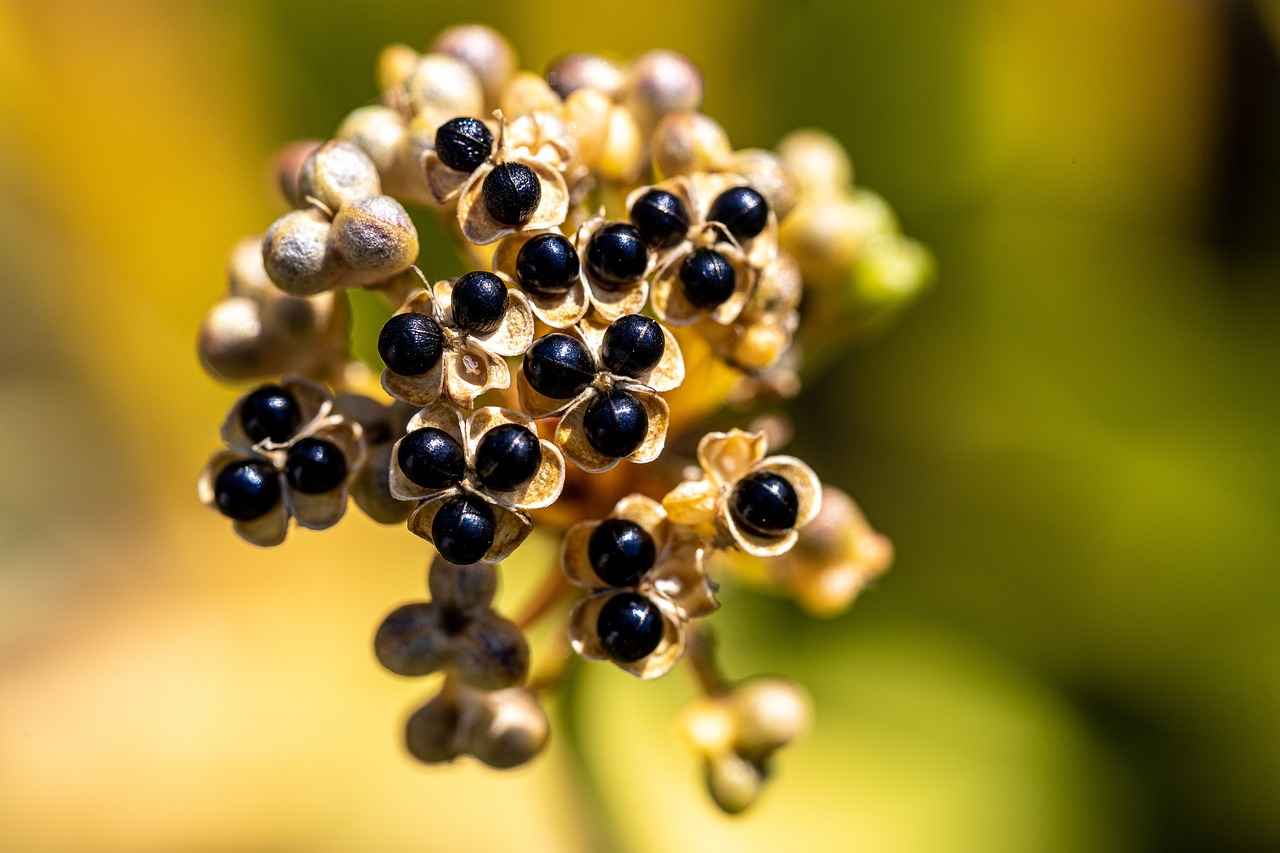
Where to Buy Quality Chia Seeds?
When it comes to incorporating chia seeds into your diet, finding high-quality chia seeds is essential for maximizing their health benefits. These tiny seeds, known for their impressive nutritional profile, can provide numerous advantages, but only if sourced correctly. So, where should you look for these nutritious powerhouses?
The quality of chia seeds can significantly impact their nutritional value and health benefits. Organic, non-GMO options are often recommended because they are free from harmful pesticides and chemicals, ensuring that you receive the purest form of nutrients. Additionally, high-quality seeds are less likely to be rancid, which can occur in lower-quality products.
There are several places you can purchase chia seeds, each offering different advantages:
- Online Retailers: Websites like Amazon, Thrive Market, and health-focused online stores often provide a wide variety of chia seeds. Look for brands that offer organic and non-GMO certifications.
- Local Health Food Stores: Many local health food stores carry high-quality chia seeds. The staff can often provide insights into the best brands and products available.
- Farmers’ Markets: Purchasing from local farmers’ markets can be beneficial as you may find fresh, organic chia seeds directly from growers.
When shopping for chia seeds, consider the following factors:
- Certifications: Always check for organic and non-GMO certifications. These labels indicate that the seeds have been produced without synthetic fertilizers and genetic modifications.
- Packaging: Look for seeds packaged in opaque, resealable bags to protect them from light and moisture, which can degrade quality.
- Expiration Date: Always check the expiration date to ensure you are purchasing fresh seeds. Rancid seeds can negatively affect your health.
- Brand Reputation: Research brands and read reviews to ensure you are buying from reputable sources known for quality products.
Price comparison is vital in ensuring you get the best deal without compromising quality. Here are some tips:
- Bulk Buying: Consider buying in bulk, as this can often reduce the cost per ounce. However, ensure you can consume them before they expire.
- Sales and Discounts: Keep an eye out for sales, especially during health awareness months or events like Black Friday.
- Sample Sizes: Some brands offer sample sizes, allowing you to test the product before committing to a larger purchase.
While chia seeds are generally safe, purchasing low-quality seeds can lead to potential risks:
- Contamination: Low-quality seeds may be contaminated with pesticides or other harmful substances.
- Rancidity: Old or improperly stored seeds can become rancid, leading to digestive issues.
In summary, sourcing high-quality chia seeds is crucial to reaping their health benefits. By focusing on organic, non-GMO options from reputable sources, you can ensure that you are incorporating the best possible ingredients into your diet. Whether through online retailers or local health stores, being informed and vigilant will help you make the best choices for your health.
Online Retailers vs. Local Stores
When it comes to purchasing chia seeds, consumers have the option of buying from online retailers or local health food stores. Each avenue has its unique advantages and disadvantages, making it essential to evaluate both before making a decision.
Online retailers offer a convenient shopping experience, allowing you to browse a wide variety of brands and products from the comfort of your home. Here are some reasons to consider:
- Wider Selection: Online platforms often have a more extensive range of chia seed products, including different brands, sizes, and types (such as organic or flavored).
- Competitive Pricing: Many online retailers frequently run promotions or discounts, allowing you to find chia seeds at lower prices compared to local stores.
- Customer Reviews: Shopping online provides access to customer reviews, which can help you assess the quality of the product before purchasing.
Local health food stores can provide a more personalized shopping experience. Here are some advantages:
- Freshness: Products at local stores are often fresher, as they have a quicker turnover rate compared to online stock.
- Support Local Business: Purchasing from local stores helps support small businesses in your community, contributing to the local economy.
- Immediate Availability: You can take home your chia seeds immediately, eliminating the wait time associated with online shipping.
Regardless of where you choose to shop, comparing prices and quality is crucial. Here are some tips:
- Check Serving Sizes: Different brands may have varying serving sizes, so ensure you are comparing like-for-like quantities.
- Look for Certifications: Whether shopping online or in-store, always check for organic or non-GMO certifications to ensure quality.
- Read Ingredient Lists: Some products may contain additives or preservatives. Aim for pure chia seeds without unnecessary ingredients.
When deciding where to buy your chia seeds, consider the following factors:
- Price: Compare prices across different platforms and stores to find the best deal.
- Quality: Ensure that you are buying high-quality seeds that will provide the health benefits you seek.
- Shipping Costs: If you choose to buy online, factor in shipping costs, as they can sometimes negate the savings from lower prices.
In conclusion, both online retailers and local health food stores have their merits when it comes to purchasing chia seeds. By carefully comparing prices, quality, and other factors, you can make an informed decision that best suits your needs.
Checking for Certifications
When purchasing chia seeds, it is essential to prioritize quality and safety. This small but powerful superfood can offer numerous health benefits, but only if you choose the right product. One of the best ways to ensure you are getting a quality product is by looking for specific certifications.
Certifications serve as a guarantee that the chia seeds you are buying meet certain standards of quality and safety. They can also provide valuable information about how the seeds were grown and processed. Here are some key certifications to look for:
- Organic Certification: This certification indicates that the chia seeds were grown without synthetic pesticides, herbicides, or fertilizers. Organic chia seeds are often considered healthier and more environmentally friendly.
- Non-GMO Certification: This ensures that the chia seeds are not genetically modified. Many consumers prefer non-GMO products for health and ethical reasons.
- Gluten-Free Certification: For those with gluten sensitivities or celiac disease, checking for a gluten-free certification can provide peace of mind.
- Fair Trade Certification: This certification indicates that the seeds were sourced from farmers who are compensated fairly and work under safe conditions.
When searching for certified chia seeds, consider both online retailers and local health food stores. Each option has its advantages:
- Online Retailers: Websites like Amazon or specialty health food sites often provide a wide range of options. You can easily filter products based on certifications and read customer reviews.
- Local Stores: Buying from local health food stores allows you to speak with knowledgeable staff who can guide you to quality products. Additionally, you can examine the packaging for certifications firsthand.
Understanding how to read labels is crucial when selecting chia seeds. Look for the following:
- Ingredient List: The ingredients should be straightforward, ideally listing only chia seeds without unnecessary additives.
- Certification Logos: Check for visible certification logos on the packaging. These logos should be from reputable organizations.
- Expiration Date: Always check the expiration date to ensure freshness. Chia seeds can last a long time, but it’s essential to buy them before the expiration date for the best quality.
Opting for certified chia seeds can enhance your overall health experience. Here are some benefits:
- Higher Nutritional Value: Certified organic seeds are often richer in nutrients due to healthier growing practices.
- Reduced Exposure to Chemicals: By choosing organic and non-GMO options, you minimize your exposure to harmful substances.
- Supporting Ethical Practices: Purchasing certified products often means you are supporting sustainable farming and fair labor practices.
In summary, when buying chia seeds, it is crucial to look for certifications such as organic and non-GMO. This not only ensures you’re getting a quality product but also helps you make informed choices that align with your health and ethical values. By taking the time to read labels and understand the importance of these certifications, you can fully enjoy the health benefits that chia seeds have to offer.
Frequently Asked Questions
- What are chia seeds?
Chia seeds are tiny, nutrient-dense seeds from the Salvia hispanica plant, packed with omega-3 fatty acids, fiber, and protein, making them a popular superfood.
- How do chia seeds benefit my health?
Incorporating chia seeds into your diet can improve heart health, aid digestion, and support weight management due to their high fiber and omega-3 content.
- Are there any side effects of consuming chia seeds?
While generally safe, some individuals may experience digestive issues like bloating or gas, especially if they consume them in large quantities without adequate hydration.
- How can I include chia seeds in my meals?
You can easily add chia seeds to smoothies, salads, or make delicious chia pudding. They enhance both nutrition and flavor without altering the taste significantly.
- Where can I buy quality chia seeds?
Look for high-quality chia seeds at local health food stores or online retailers, ensuring they are organic and non-GMO for the best health benefits.
